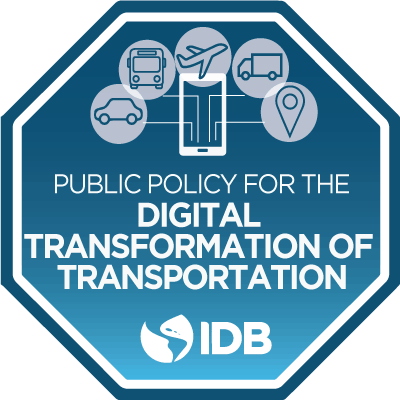Public Policy for the Digital Transformation of Transportation 1st edition
Puede obtener esta insignia si completa con éxito el curso.
SOBRE ESTE CURSO
This training space offers a way to learn how current technological trends apply in the transportation sector, drawing from international benchmarks of best practices and reviewing the benefits that are evident for users, the public sector, and other stakeholders identified as international or regional leaders in transportation services.
The course highlights examples and success stories across various sub-sectors: air, maritime, land, and logistics. Additionally, it provides the opportunity to assess the current state of your context and identify potential courses of action for managing digital transformation processes by public administration. Tools for defining resilient public policies in a framework of uncertainty and irreversible technological trends are also reviewed
